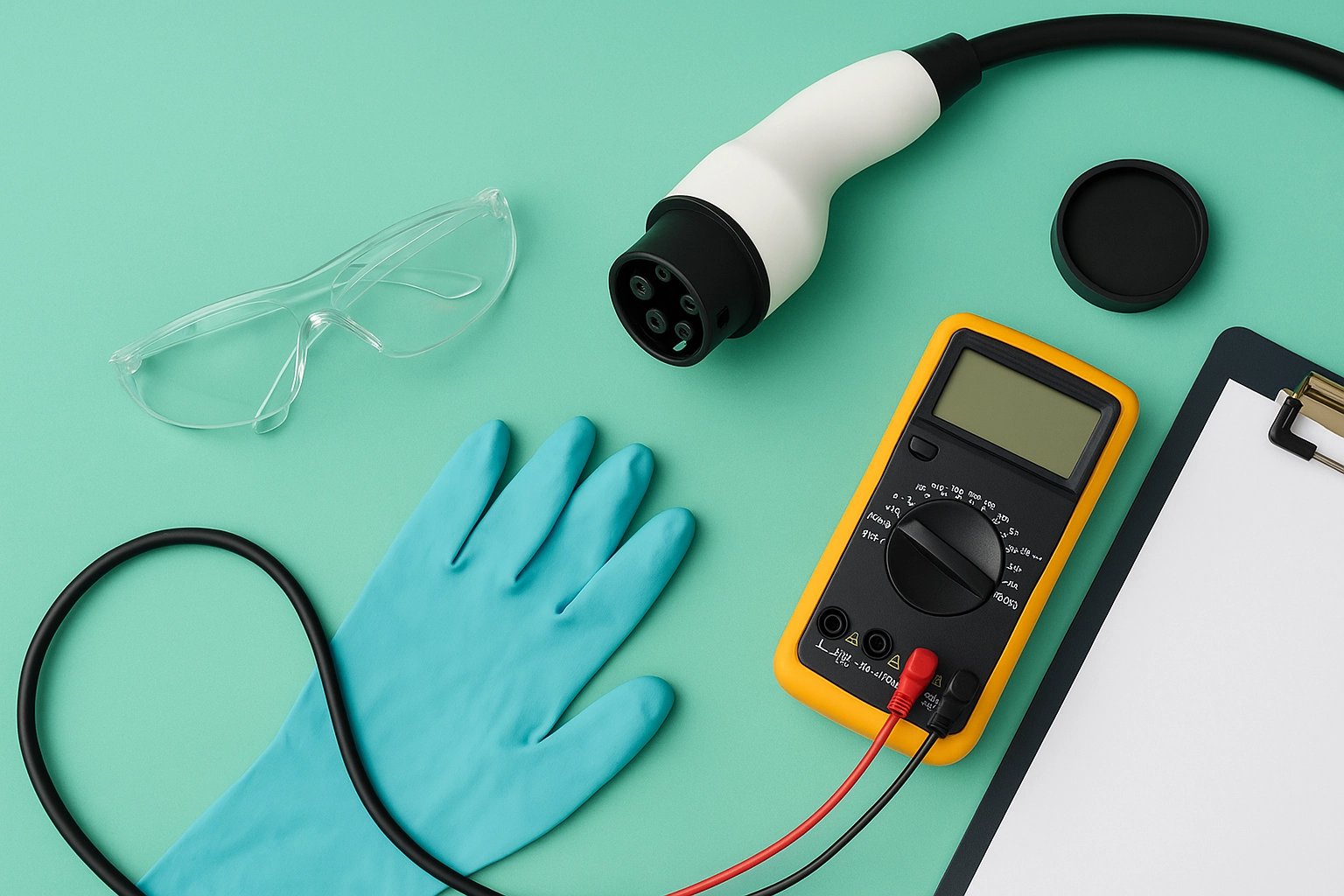GB T 34657 1 Communication Protocol EV Charging Test
The GB/T 34657.1 standard for communication protocols in electric vehicle (EV) charging infrastructure is a critical component of ensuring interoperability and safety between different types of chargers and vehicles. This test evaluates the ability of an EV charger to comply with this protocol, which includes parameters such as message format, error handling, security measures, and session management.
The standard specifies the communication interface for the charging process that supports both AC and DC charging systems. Compliance testing ensures that the charging equipment can properly communicate with the vehicle's onboard diagnostic (OBD) system to exchange necessary information during the charging session. This includes data such as charge level, status updates, and error reporting.
The GB/T 34657.1 standard is part of a broader suite of standards that ensures the safe and efficient operation of EV chargers. It aligns with international standards like ISO/IEC 27001 for information security management systems, which emphasizes the importance of secure communication channels in charging infrastructure.
Compliance testing involves several key steps:
- Setting up a controlled environment to simulate real-world conditions.
- Configuring the charger and vehicle with appropriate software and hardware settings.
- Initiating a charging session and monitoring communication messages exchanged between the charger and the vehicle.
- Verifying that all messages comply with the specified format, content, and timing requirements of GB/T 34657.1.
The testing process aims to identify any discrepancies or non-compliance issues early in the development cycle, ensuring that chargers meet the highest industry standards for reliability and security. This is crucial given the growing adoption of electric vehicles, which require robust and standardized charging infrastructure.
| Use Case | Description |
|---|---|
| Data Exchange | The charger must exchange data with the vehicle's OBD system to monitor charging status and error reporting. |
| Error Handling | The charger should respond appropriately to errors or anomalies detected during the charging session. |
| Session Management | The charger needs to manage sessions efficiently, ensuring that charging operations are seamless and secure. |
| Security | Communication between the charger and the vehicle must be secure to prevent unauthorized access or data tampering. |
This testing ensures that the charger can operate safely and efficiently in real-world scenarios, thereby enhancing user confidence and satisfaction. It also helps manufacturers ensure compliance with regulatory requirements and industry best practices.
Why Choose This Test
- Achieve Compliance: Ensure your charging equipment meets the latest standards and regulations.
- Enhance Reliability: Identify and rectify any issues in communication protocols early in development.
- Improve Security: Secure communication between chargers and vehicles to protect against unauthorized access and data breaches.
- Increase Efficiency: Streamline the charging process for both users and operators.
The GB/T 34657.1 test is essential for manufacturers aiming to produce high-quality EV chargers that can integrate seamlessly into existing infrastructure. By choosing this test, you demonstrate your commitment to quality and safety, which can enhance your brand reputation and market position.
Competitive Advantage and Market Impact
The GB/T 34657.1 compliance test offers several competitive advantages for manufacturers of EV charging equipment:
- Market Access: Compliance ensures that your chargers can be deployed in markets that mandate adherence to this standard.
- Better User Experience: Reliable and secure communication enhances user satisfaction, leading to higher customer retention rates.
- Enhanced Safety: Ensuring compliance with the latest standards improves operational safety and reduces risks associated with charging errors.
In addition, by meeting these stringent requirements, manufacturers can differentiate themselves in a crowded market, attracting more customers who prioritize quality and security. This can lead to increased sales and market share, contributing positively to your business growth.
Use Cases and Application Examples
| Use Case | Description |
|---|---|
| Charging Stations | Ensure that chargers installed at public charging stations are compliant with the latest standards. |
| Home Charging Systems | Verify that home chargers can effectively communicate with vehicles and provide a seamless user experience. |
| Demonstration Units | Test new models of EV chargers to ensure they meet all necessary communication protocols before market release. |
| R&D Prototyping | Prioritize the development cycle by identifying and addressing any issues in the early stages of prototype creation. |
By conducting GB/T 34657.1 compliance tests, manufacturers can ensure that their chargers are ready for deployment across various environments, from public charging stations to private homes. This standardization not only enhances user experience but also ensures interoperability between different types of EV chargers and vehicles.





